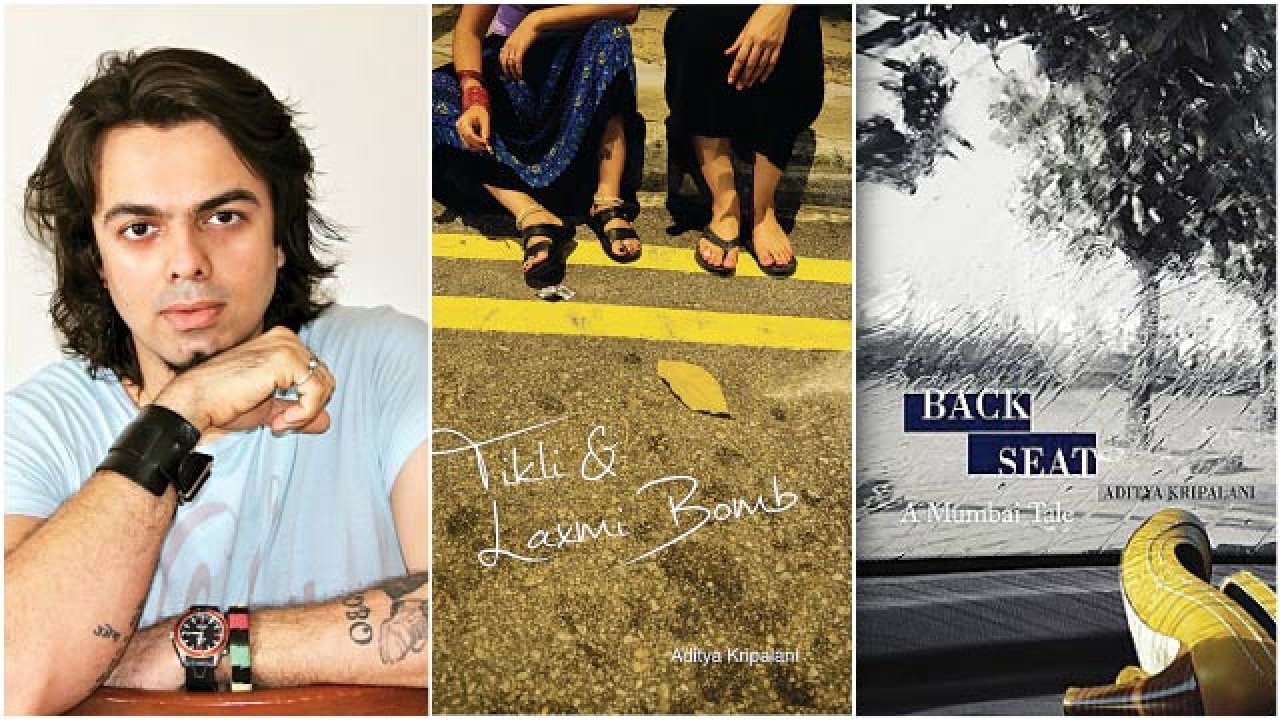
He was just a regular 16-year-old, riding high on hormones when he started visiting dance bars. Accompanied by the building watchman, the bars were one of the few sources that satiated the teenager's curiosity, which later turned into an eagerness to know about the dark underbelly of the dancers' lives. He translated the same in his debut book, Back Seat, written at the age of 26, which was about a bar dancer who gets trapped in the trade. Now, three books and nine years later, 35-year-old Aditya Kripalani has donned the mantle of director to adapt his last book, Tikli and Laxmi Bomb, into a film. Set to release by the end of 2017 and shot across Mumbai, the movie stars Upendra Limaye, Suchitra Pillai, Chitrangada Chakraborty, and Vibhavari Deshpande. Kripalani talks about his journey from books to movies:
Why did you decide to turn Tikli and Laxmi Bomb into a film?
I've always been a fan of films such as Mirch Masala, Manthan, Mother India, where women are protagonists. The idea of a strong feminist film came from these movies. Even though Bollywood has content that is women-centric, in the end, the film belongs to one big star. For example, both Pink and Dangal have strongly talked about women, but Amitabh Bachchan and Amir Khan are the heroes. Queen, meanwhile, was an exception. The heroines are the heroes in Tikli and Laxmi Bomb.
What's the theme?
It's the story of Putul and Laxmi, who are prostitutes and share a teacher-student relationship. Laxmi trains Putul in tricks of the trade. While sex trade may look like it's dominated by women, the reality is that there's deep-rooted patriarchy in the set-up. Men are at the helm of affairs and they exploit women not just physically and emotionally, but financially too. A major chunk of a sex-workers earnings are taken away by pimps and cops, and there is no legal recourse for these women. Those who are supposed to protect the women turn into predators. My film is about how Putul and Laxmi come together to challenge this parochial system and empower themselves.
Is it based on real-life stories?
To some extent. I began my research 10 years ago when I started work on my first book, Back Seat. I met many sex workers who operate on the streets of Mumbai. During my interactions with them, I came to know of the dangers they face on a daily basis just to earn a living. For example, they take extra care while soliciting customers on the road to see that there are no men in the back seat of the car. There is also the fear of someone joining the customer once the woman drives off with him, and not getting paid for their services is a very common problem. I have tried to show all of this in the movie.
Your books have always been about sex-workers...
For a teenager trying to learn about birds and bees, I started feeling strongly for the deplorable conditions they work in. But what actually drew me to them was how these women are so full of life. You won't find any trace of sadness in them and their zeal for life is infectious.
What was the most difficult part about switching from writing to directing?
As a director, the most challenging part has been handling issues of so many people for days at a stretch, which is still going on. You walk out of your space on a set and everyone looks up to you for direction and answers. As a novelist, meanwhile, life is comparatively more solitary. Also, the basic physical strength required to make a film like this has been surprising. I exercise everyday and consider myself pretty fit but hanging out of rickshaws with a camera, walking under pipelines in bastis, etc has taken its toll on me.
Tell us a little about Putul and Laxmi's personalities...
Putul is a firebrand woman. She has a fiery temper and gets angry at the drop of a hat but cools down pretty fast too. She has an insatiable curiosity and questions everything. Laxmi, on the other hand, carries the storm more within herself than outside. It takes her a while to lose her cool, but when she does, she means business, as she has thought out her response. Laxmi represents the old order.